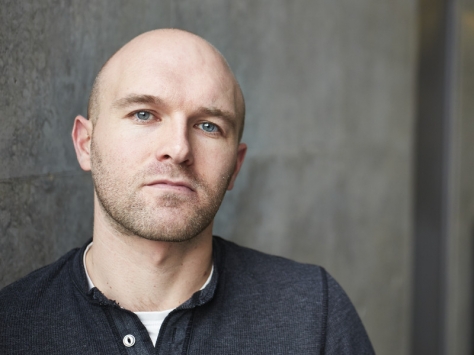News | Thursday, 6th July 2017
Heritage project to capture memories of pioneering military hospital
Drs Sam and Ben Edwards will explore history of Moss Side on Merseyside which became renowned for treating shell shock

Volunteers are needed for a project to capture memories of a military hospital on Merseyside which pioneered treatment for soldiers with shell shock during the First World War.
Moss Side Military Hospital in Maghull treated over 3,600 patients between opening in December 1914 and 1919, and became renowned in the developing field of psychological medicine. Clinical staff at the time were described as “the brilliant band of workers who made Maghull the centre for the study of abnormal psychology”.
The Moss Side site eventually closed in 1995 and the buildings were later demolished but it is now the subject of an exciting new Heritage Lottery Funded project at The Atkinson in Southport to ensure the legacy of those who worked and were treated there is not forgotten during the centenary commemorations of the Great War.
As well as unearthing fascinating local heritage for people in Sefton and across Merseyside, the project will also shine a light on how the ground-breaking treatment offered at Moss Side has influenced our modern understanding of conditions such as post-traumatic stress disorder.
In conjunction with academics from Manchester Metropolitan University, Sefton Library Services, archives consultant Kevin Bolton and Sefton Library Services, The Atkinson will launch ‘Maghull and the Great War Remembered: Shell Shock - the impact and aftermath on lives and minds’ at Meadows Library in Maghull on July 21st (11am-4:30pm).
If you are interested in local or family history drop in to Meadows Library in Maghull on July 21st where you can meet the team running a new project celebrating this important, but little-known heritage, and find out how you can get involved.
Volunteers – or a new “brilliant band” - are needed to help collect oral histories, to add to existing archives, and help to run a series of exhibitions, workshops and events between October 2017 and November 2018.
Archive consultant Kevin Bolton and academics and heritage experts from Manchester Metropolitan University will provide free training, and volunteers are welcome to commit as much or little time to the project as they like.
Please come along to the launch to find out more or get in touch by emailing WW1volunteering@theatkinson.co.uk.
Emma Anderson, Director of The Atkinson, said: “We are delighted to be working in partnership with a highly respected team of historians from Manchester Metropolitan University, Amy Walling, Drs Ben Edwards and Sam Edwards, plus archive consultant Kevin Bolton, who lead the development of Archives + in Manchester, and with our colleagues at Sefton Library Services to launch this exciting Heritage Lottery Funded project.”
Dr Sam Edwards, Senior Lecturer in History at Manchester Metropolitan University, said: “The First World War saw the emergence of increasingly destructive forms of mechanized warfare, especially along the trenches of the Western Front.
“The result of all these deadly innovations was to make war increasingly traumatic for those who experienced and endured it. For many soldiers, prolonged exposure to these conditions broke nerves, and broke minds. As a result, military doctors coined a new phrase: shell shock. In time, hospitals were established back in Blighty to treat those struggling with this condition.
“One famous such hospital was at Craiglockhart, near Edinburgh, where war poets Wilfred Owen and Siegfried Sassoon were at one point patients.
“But another such hospital was at Moss Side in Maghull. Sadly, the remains of this hospital have now gone. But many of the records survive, and so too do the stories of those who lived nearby.
“This project seeks to recover the lost history and heritage of Moss Side hospital; it seeks to reclaim the stories of the patients, doctors, nurses and local residents who battled with the shell shock of modern war.
“Today, public awareness of mental health concerns is better than ever before. Even so, the challenges of post-traumatic stress disorder - as shell shock is now known to be a form of - are still relatively un-discussed and un-appreciated. As we reflect on the centennial of the conflict, this project will revisit the forgotten stories of those traumatized by the First World War, reminding us that war - in past and present - maims bodies and minds.”
Notes to editors
Emma Anderson and the Manchester Metropolitan University historians are available for print, radio and TV interviews. For more information, contact Dominic Smith at the Manchester Metropolitan University press office on 0161 247 5277 or Dominic.Smith@mmu.ac.uk.




